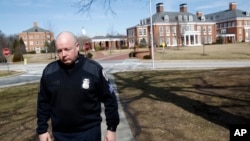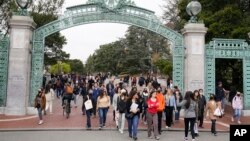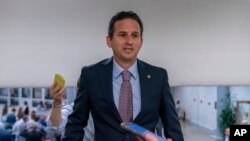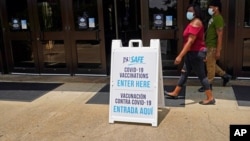Student Union
Write for the Student Union (and Other Opportunities)
The new school year is about to start, and we're looking for a whole new group of writers to join us as regular contributors! If you're studying in the U.S. this year, or are applying to come to the U.S. next year, we'd love to have you share your experiences as one of our student bloggers.
You'd be joining some of our previous writers who we're very excited to have back again this year.
Send your resume, a cover letter and a writing sample to jstahl@voanews.com to apply. More details below.
Opportunity 2: Write for us at any time!
Of course, you don't have to be one of our regular bloggers to contribute to our community at any time. Many of you have already shared your stories and asked your burning questions, and we hope you'll continue doing that!
Go to //blogs.voanews.com/student-union/share/ to participate, or join us on Facebook.
Opportunity 3: Practice English in Moscow or St. Petersburg
We were contacted this week by an American who's traveling to Russia and offered to meet with students who are interested in practicing English with him. He says he's a retired lawyer from Illinois. I don't have any more details than that, but if you're in Russia and might be interested, email me (jstahl@voanews.com) and I can put you in touch.
Details about Becoming a Regular Blogger:
We're looking for talented and insightful writers/reporters to share their experiences, challenges and triumphs with our audience, and to give international students a glimpse into what it’s like to study in the US.
You'll get a lot of freedom to write about what interests you and what you think is interesting to other people, as long as its relevant. We ask each of our writers to contribute at least one blog post each month, and there are opportunities to participate in other optional projects regularly.
You will come away with a portfolio of professional writing, and we will work closely with you throughout your internship to help perfect your writing and storytelling skills.
Course credit may be available if your university permits it.
You must:
- Have exceptional English writing and speaking skills. Multimedia skills (video, audio, photography) would also be an asset
- Be a current college/university student (or be applying to college/university this year). We’re looking for people from a range of backgrounds, majors and degree levels (grad and PhD students included)
- Be willing to contribute at least once a month when school is in session
- Be able to commit for at least a semester, preferably for the full year
To apply:
Submit a cover letter, resume and a writing (or multimedia) sample to jstahl@voanews.com.
See all News Updates of the Day
Tips for staying safe while studying in the US

Recent news events have raised safety concerns among some international students studying in the United States.
Adarsh Khandelwal, writing in the India Times, has tips for staying safe from the moment you arrive until the day you complete your studies. (March 2024)
Some colleges are making digital literacy classes mandatory

A 2019 study by Stanford found that most college students can’t tell the difference between real and fake news articles. Amid rampant online disinformation, and the threat of AI-generated images, some schools are making students learn “digital literacy” to graduate.
Lauren Coffeey reports for Inside Higher Ed. (March 2024)
With federal student aid delays, students aren’t sure what college will cost

The U.S. Department of Education’s federal student aid form (FAFSA) experienced serious glitches and delays this year.
Now, many students have been admitted to college, but don’t know how much money they’ll need to attend.
Read the story from Susan Svrluga and Danielle Douglas-Gabriel for The Washington Post. (March 2024)
Senator draws attention to universities that haven’t returned remains

More than 70 U.S. universities continue to hold human remains taken from Native American burial sites, although those remains were supposed to be returned 30 years ago.
Jennifer Bendery writes in Huffington Post that one senator has been using his position in an attempt to shame universities into returning remains and artifacts. (April 2024)
COVID forced one international student to go hungry

When Samantha (not her real name) enrolled in community college in the U.S., her family at home in South Africa scrimped and saved to support her.
But the COVID-19 pandemic hurt the family’s finances, and at one point Samantha had four on-campus jobs just to make ends meet. Many in the U.S. believe international students are wealthy sources of funding for universities, but stories like Samantha’s suggest otherwise.
Andrea Gutierrez reports for The World. (March 2024)







